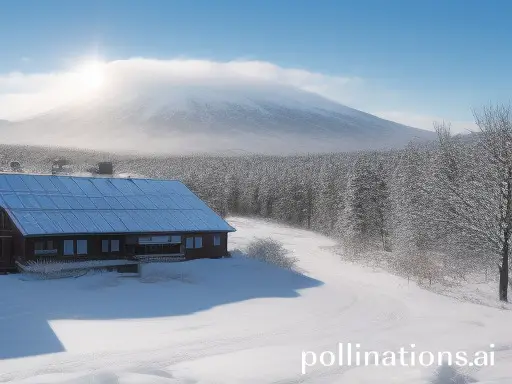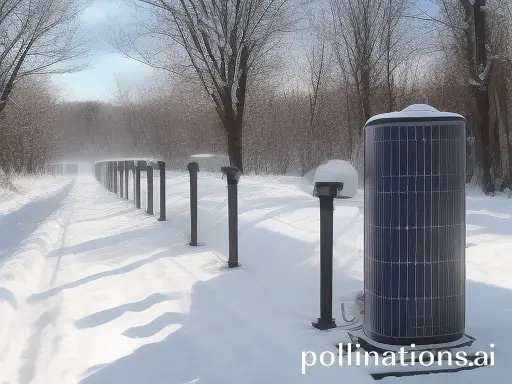Unlock the hidden potential of solar heaters for winter warmth. In this comprehensive guide, we will delve into the practicality, advantages, and limitations of utilizing solar heaters during colder months. Let’s explore the inner workings of solar heaters, essential considerations for winter heating, and expert tips to optimize their efficiency.
By embracing renewable energy, you can not only slash energy costs but also shrink your carbon footprint, paving the way for a sustainable future. Join us on this captivating journey as we uncover the world of solar heaters for winter comfort.

How Solar Heaters Work
Harnessing the Power of the Sun to Generate Heat
Solar heaters use two primary technologies to harness the power of the sun and generate heat: photovoltaic cells and solar thermal collectors. Photovoltaic cells convert sunlight into electricity, while solar thermal collectors absorb the sun’s rays to heat a fluid or air.
The Process of Converting Solar Energy into Usable Heat for Homes
Once sunlight is converted into heat energy, solar heaters distribute the heat using conduction, convection, and radiation. Conduction transfers heat through direct contact, convection involves the movement of heated fluid or air, and radiation is the transfer of heat through electromagnetic waves.
Solar heaters have systems to absorb and distribute heat efficiently. These systems collect the heat energy and transfer it to a storage medium, such as water or air. The stored heat can then be distributed throughout the house using pumps, fans, or radiators, providing reliable winter heating.
In summary, solar heaters harness the power of the sun through photovoltaic cells and solar thermal collectors. The sunlight is converted into heat energy, which is then transferred and distributed using conduction, convection, and radiation. With efficient heat absorption and distribution systems, solar heaters can provide reliable winter heating for homes.
Expert tip: Harness the power of the sun with solar heaters for reliable winter heating at home.Factors to Consider for Winter Heating
Evaluating the Climate and Sunlight Availability in Your Area
When considering solar heaters for winter heating, it is crucial to evaluate the climate and sunlight availability in your area. Different regions experience varying levels of sunlight during the winter months. This directly impacts the efficiency of solar heating systems. Areas with fewer sunlight hours or frequent cloudy days might not be ideal for relying solely on solar heaters for winter heating. It is essential to assess the average daily sunlight hours and the number of cloudy days in your area. This will help determine if solar heaters can provide reliable winter heating.
Assessing the Size and Efficiency of the Solar Heating System Needed for Adequate Winter Heating
To ensure adequate winter heating with solar heaters, two key factors should be considered. First is the size of the home and its heating requirements. Second is the efficiency ratings and energy output of the solar heating system.
Size of the Home and Heating Requirements
The size of your home and its heating requirements play a crucial role in determining the size of the solar heating system needed for reliable winter heating. Larger homes with higher heating demands will require larger solar heating systems to meet the desired temperature levels. It is important to calculate the heating load of your home. This takes into account factors such as insulation, windows, and overall energy efficiency.
Efficiency Ratings and Energy Output
When selecting a solar heating system for winter heating, it is essential to consider the efficiency ratings and energy output of the system. Look for solar heaters with high efficiency ratings. They can convert a larger percentage of sunlight into usable heat. Additionally, consider the energy output of the system, which determines the amount of heat it can generate. A higher energy output ensures that the solar heating system can meet the heating demands of your home during winter.
| Factors to Consider for Winter Heating |
|---|
| Evaluating the Climate and Sunlight Availability in Your Area |
| Assessing the Size and Efficiency of the Solar Heating System Needed for Adequate Winter Heating |
|
Benefits of Solar Heaters for Winter Heating
Lower Energy Costs and Reduced Reliance on Traditional Heating Methods
Solar heaters reduce energy costs by using solar energy instead of traditional heating methods. This not only lowers utility bills but also provides long-term savings. Solar heaters provide a reliable heat source throughout winter without worrying about fluctuating fuel prices.
Environmental Advantages of Using Renewable Energy for Heating
Solar heaters reduce our carbon footprint and promote sustainable living. Here are two key environmental advantages of using solar heaters for winter heating:
Reduction in Carbon Footprint: Solar heaters produce clean energy and do not release harmful greenhouse gases. By choosing solar heaters, you can significantly reduce your carbon footprint and contribute to a healthier environment.
Contribution to Sustainable Living: Solar heaters rely on abundant and renewable solar energy. Unlike fossil fuels, solar energy is a clean and sustainable resource that will never run out. By embracing solar heating, you actively participate in sustainable living practices and help create a greener future.
Solar heaters offer numerous benefits for winter heating. They lower energy costs, reduce reliance on traditional methods, and provide environmental advantages by reducing carbon emissions and promoting sustainable living. By harnessing the power of the sun, solar heaters offer a reliable and eco-friendly solution for keeping your home warm during winter.

Limitations of Solar Heaters in Winter
While solar heaters are a sustainable and cost-effective option for heating, they have limitations during the winter months. Understanding these limitations can help homeowners make informed decisions about their heating needs.
The Impact of Reduced Sunlight and Shorter Days on Heating Capacity
During winter, reduced sunlight and shorter days can significantly impact the heating capacity of solar heaters. With fewer hours of sunlight, the solar panels may not receive enough energy to generate sufficient heat. This can result in a decrease in overall heating output, making it challenging to maintain a comfortable temperature indoors.
Supplementing Solar Heaters with Alternative Heating Methods
To overcome the limitations of solar heaters in winter, homeowners can consider supplementing them with alternative heating methods. By combining different systems, consistent warmth can be ensured throughout the season.
- Using Backup Heating Systems: Installing backup heating systems, such as gas or electric heaters, can provide additional warmth when solar heaters are unable to meet the heating demands. These systems can be activated automatically when the solar heater’s output is insufficient, ensuring a comfortable indoor temperature.
- Incorporating Energy-Efficient Insulation: Enhancing the effectiveness of solar heaters in winter can be achieved by incorporating energy-efficient insulation in the home. Proper insulation helps retain the generated heat and prevents its loss to the external environment. This reduces reliance on solar heaters alone and improves overall heating efficiency.
By combining backup heating systems and energy-efficient insulation, homeowners can overcome the limitations of solar heaters in winter and maintain a warm and comfortable living space throughout the colder months.
| Information |
|---|
| Solar heaters have limitations in providing reliable winter heating due to reduced sunlight and shorter days. |
| Supplementing solar heaters with backup heating systems and energy-efficient insulation can ensure consistent warmth. |
1. Use backup heating systems, like gas or electric heaters, to ensure warmth when solar heaters are insufficient.
2. Incorporate energy-efficient insulation to retain heat and improve overall heating efficiency.
Tips for Maximizing Winter Heating with Solar Heaters
1. Positioning Solar Panels for Optimal Sunlight Exposure
To maximize winter heating with solar heaters, position the solar panels to get the most sunlight. Here are some tips:
- Optimal Angle: Adjust the tilt of the solar panels to match your location’s latitude. This helps absorb more sunlight during winter when the sun is lower in the sky.
- Avoid Shading: Make sure there are no trees or buildings casting shadows on the solar panels. Shading reduces energy generation.
- Regular Cleaning: Keep the solar panels clean and free from dust, snow, or debris. Cleaning them regularly maintains efficiency and maximizes sunlight absorption.
2. Utilizing Energy Storage Systems to Store Excess Heat
To overcome challenges during nighttime or cloudy days, use energy storage systems to store excess heat from solar heaters. Consider the following:
- Importance of Proper Panel Orientation: Align the solar panels towards the south (in the Northern Hemisphere) or north (in the Southern Hemisphere) to optimize energy production and increase stored heat.
- Different Types of Energy Storage Systems: There are various options like solar batteries, thermal mass storage, or phase change materials. Each system has its advantages and suitability based on specific needs and budget.
By following these tips and optimizing solar heaters during winter, you can enhance reliability and efficiency. Properly position the solar panels and use energy storage systems for a steady heat supply even during unfavorable weather. Regular maintenance of the panels and choosing the right storage system are crucial. With these strategies, solar heaters can provide reliable winter heating, reduce dependence on traditional methods, and lower the carbon footprint.
Conclusion
In conclusion, solar heaters offer significant benefits for winter heating, including lower energy costs and reduced reliance on traditional methods. However, their suitability depends on factors like climate, sunlight availability, and system efficiency.
While solar heaters may have limitations during colder months, proper positioning of panels and energy storage systems can maximize winter heating. It is advisable to consult professionals and conduct further research to find personalized solutions for winter heating with solar heaters. By considering these factors and taking appropriate measures, solar heaters can be a viable option for efficient and sustainable winter heating.
Faq about Solar Heaters
FAQ 1: Can Solar Heaters Provide Enough Heat During Cold Winter Days?
Yes, solar heaters can provide reliable winter heating. Modern solar heating systems are designed to work efficiently even in colder climates and can generate heat even during cloudy or overcast winter days.
FAQ 2: Are Solar Heaters Suitable for Areas with Limited Sunlight?
Solar heaters can still be a viable option for areas with limited sunlight. While they perform optimally in areas with ample sunlight, they can still generate heat even in areas with less sunlight. It is important to consider the specific climate and sunlight conditions of your area and consult with a professional to determine the feasibility and efficiency of a solar heating system.
FAQ 3: Do Solar Heaters Require a Backup Heating System?
In most cases, solar heaters do not require a backup heating system. They are designed to provide consistent heating throughout the year, including during the winter months. However, it is recommended to have a backup heating system in place for extreme weather conditions or in case of any issues with the solar heating system.
FAQ 4: How Much Does It Cost to Install a Solar Heating System?
The cost of installing a solar heating system can vary depending on factors such as the size of the system, the complexity of the installation, and the specific requirements of your property. It is best to consult with a professional solar heating installer to get an accurate estimate based on your needs and location.
FAQ 5: Are There Any Government Incentives or Rebates Available for Solar Heating Installations?
Yes, there are government incentives and rebates available for solar heating installations. Federal and state incentive programs, tax credits, and rebates are often available to encourage the adoption of renewable energy systems like solar heaters. Additionally, there are financing options available to help offset the initial cost of installing a solar heating system. It is recommended to research and explore the available incentives and financing options in your area to make the most of these opportunities.
